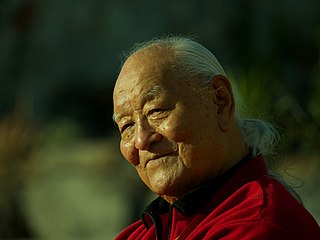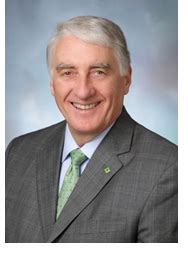A Quote by Jonathan Martin
Our scars reveal who we are. The fact that we have experienced profound suffering in life—the fact that we carry what may seem to be unsightly scars—does not disqualify us from following Jesus. It may be precisely what qualifies us.
Related Quotes
There are various art forms we may or may not have talent for, may or may not have time for, and we may or may not be able to express ourselves in, but we ought to consider this fact-that whether we choose to be an environment or not, we are. We produce an environment other people have to live in. We should be conscious of the fact that this environment which we produce by our very 'being' can affect the people who live with us or work with us.
Duality is the real root of our suffering and of all our conflicts. All our concepts and beliefs, no matter how profound they may seem, are like nets which trap us in dualism. When we discover our limits we have to try to overcome them, untying ourselves from whatever type of religious, political, or social conviction may contain us. We have to abandon such concepts as 'enlightenment', 'the nature of the mind', and so on, until we no longer neglect to integrate our knowledge with our actual existence.
While it may come as a profound surprise to those of us who are in the throes of an emotional or life crisis, the fact remains that the answer to virtually all of our problems resides within us already. It exist in the form of a vast reservoir of free-flowing energy that, when channeled to our muscles, can give us great strength and, when channeled to our brain, can give us great insight and understanding.
We know when we are following our vocation when our soul is set free from preoccupation with itself and is able to seek God and even to find Him, even though it may not appear to find Him. Gratitude and confidence and freedom from ourselves: these are signs that we have found our vocation and are living up to it even though everything else may seem to have gone wrong. They give us peace in any suffering. They teach us to laugh at despair. And we may have to.
Any fact facing us, however difficult, even seemingly hopeless, is not so important as our attitude toward that fact. How you think about a fact may defeat you before you ever do anything about it. You may permit a fact to overwhelm you mentally before you deal with it actually. On the other hand, a confident and optimistic thought pattern can overcome or modify the fact altogether.
Compassion allows us to use our own pain and the pain of others as a vehicle for connection. This is a delicate and profound path. We may be adverse to seeing our own suffering because it tends to ignite a blaze of self-blame and regret. And we may be adverse to seeing suffering in others because we find it unbearable or distasteful, or we find it threatening to our own happiness. All of these possible reactions to the suffering in the word make us want to turn away from life.
Love can transform us. It can be a healing force or a disaster, a tidal wave, a tornado. It can burn and scar us or heal our scars. It can be the ghost that haunts us, or the best friend who reads our every thought. Love may arrive like an angel of mercy, a fairy with raven wings or a hairy beast that will tear us apart limb from limb, kill and savor us down to the bones.
To forgive somebody is to say one way or another, "You have done something unspeakable, and by all rights I should call it quits between us. Both my pride and my principles demand no less. However, although I make no guarantees that I will be able to forget what you've done, and though we may both carry the scars for life, I refuse to let it stand between us. I still want you for my friend.
The things we hope in sustain us during our daily walk. They uphold us through trials, temptations, and sorrow. Everyone has experienced discouragement and difficulty. Indeed, there are times when the darkness may seem unbearable. It is in these times that the divine principles of the restored gospel we hope in can uphold us and carry us until, once again, we walk in the light.
What I'm most deeply grateful for is that God's love for us, approval of us, and commitment to us does not ride on our resolve but on Jesus' resolve for us. The gospel is the good news announcing Jesus' infallible devotion to us despite our inconsistent devotion to Him. The gospel is not a command to hang on to Jesus; it's a promise that no matter how weak and unsuccessful our faith and efforts may be, God is always holding on to us.



































